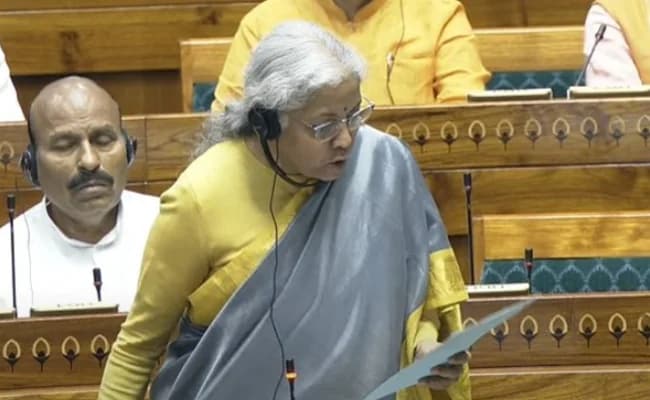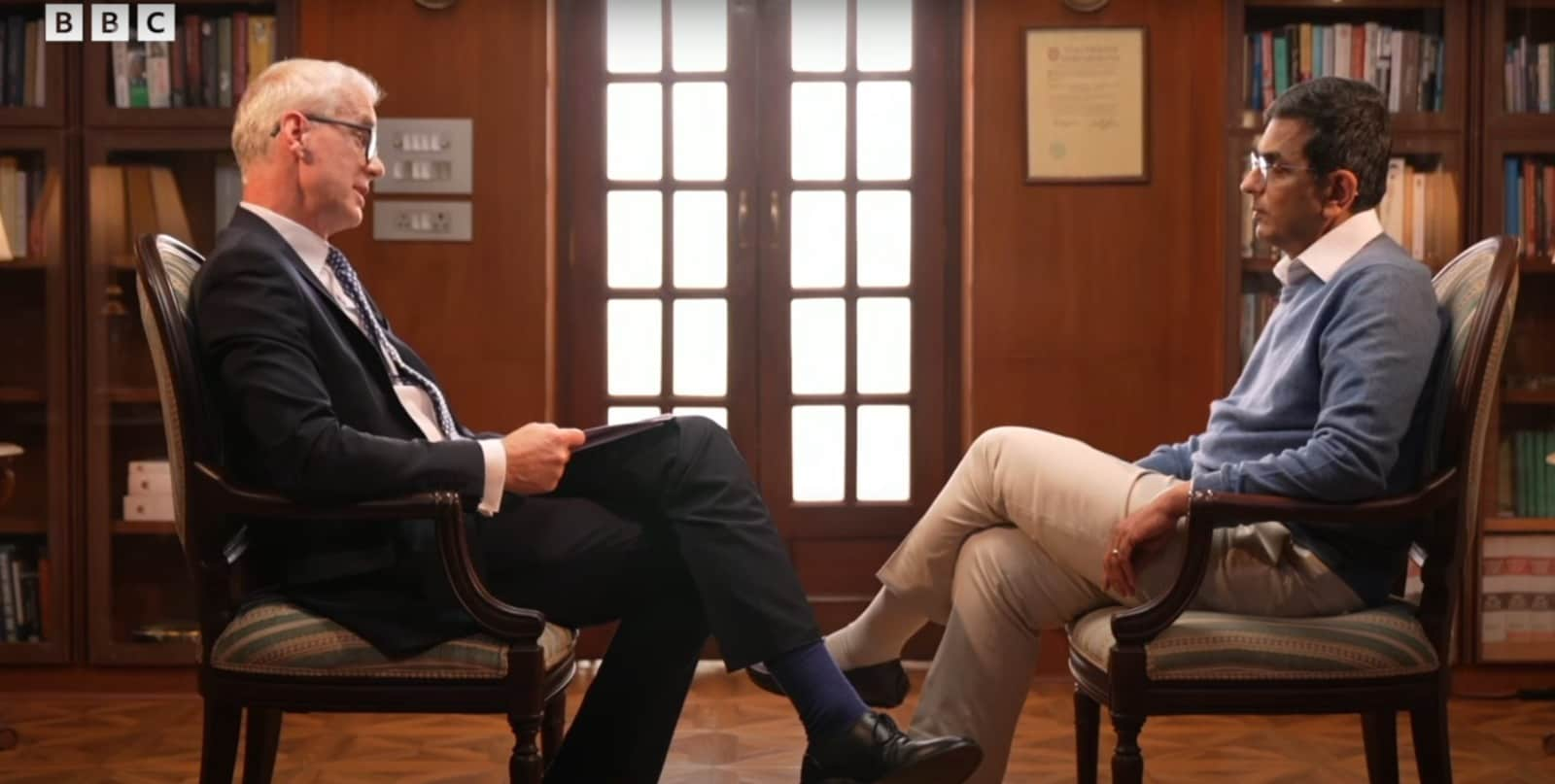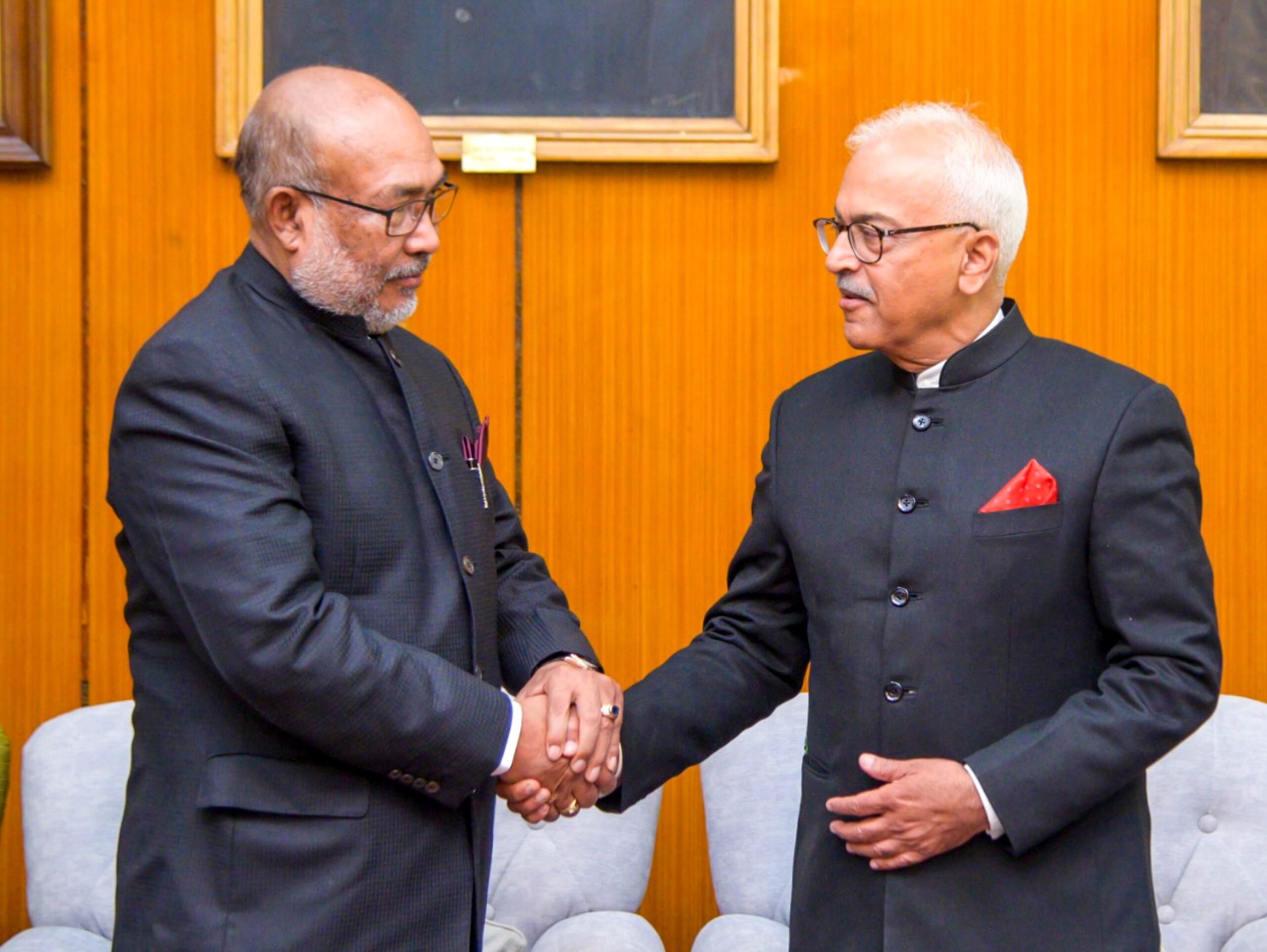Finance Minister Nirmala Sitharaman tabled the new income tax bill – which is expected to cut through the jargon in the 1961 Income Tax Act and make it easier to understand – in Parliament on Thursday.
However, as she rose to present the bill, some members of the opposition staged a walk-out and others lobbed fierce questions at her. Among the latter, the Congress’ Manish Tewari and the RSP’s NK Premchandran suggested the new tax bill is, in fact, more complicated than the old.
Trinamool MP Saugata Roy then criticised the new bill as being “mechanical”,
Ms Sitharaman said the MPs were incorrect; she said the present law had over 800 sections whereas the proposed law had only 536. In a post on X (formerly Twitter), the Finance Ministry said the new tax system is built on five core principles, which make it ‘S.I.M.P.L.E’ for people to follow and to enforce.
These five principles were explained as: “Streamlined structure and language, Integrated and concise, Minimised litigation, Practical and transparent, Learn and adapt, and Efficient tax reforms”.
The Income-Tax Bill, 2025 has been introduced in the Lok Sabha today.
The Bill aims to simplify the tax system for all and is built on these core “SIMPLE” principles:⬇️ pic.twitter.com/bX4Zc1ImdR— Income Tax India (@IncomeTaxIndia) February 13, 2025
She also said “substantial changes” had been made to the old law.
“Number of words have come down by half… sections and chapters have been cut,” she said.
The new bill was then put to a voice vote. Opposition members who remained opposed its introduction – even at this stage – but the new income tax proposals was, as expected, passed.
Ms Sitharaman then referred the bill to a joint parliamentary committee – which will examine the new tax proposals and make changes, if needed – before it is re-tabled in the House for passing.
The JPC is expected to submit its report on March 10, the first day of the second half of the Budget Session. This committee will be set up by Lok Sabha Speaker Om Birla.
The New Income-tax Bill, 2025 has been tabled in Parliament.
The Bill aims to simplify the language of the existing law as amended to date.
The Bill is available at our website https://t.co/z0wOo162Xq
Our FAQs address common queries regarding the objectives and the outcome of… pic.twitter.com/txfke5wKo8
— Income Tax India (@IncomeTaxIndia) February 13, 2025
After tabling the bill, Ms Sitharaman’s office tweeted, “The new Income Tax Bill has been tabled. The bill aims to simplify the language of the existing law as amended to date. (A copy of) the bill is available at our website… Our FAQs address common queries regarding objectives and the outcome…”
What Is The New Income Tax Bill?
The new law will take effect from April 1, 2026. It will not, however, change existing tax slabs.
Among the proposed changes and amendments is the concept of a ‘tax year’, which will replace the simultaneous use of ‘financial year’, or FY, and ‘accounting year’, or AY. In other words, under current income tax laws, tax for income earned in 2023/24, for example, is paid in 2024/25.
The proposed change will see the introduction of a ‘tax year’, so tax on income earned in a year will be paid that year. It has also omitted redundant sections, like those about ‘fringe benefit tax’.
READ | Reader Friendly, Handy Tables For Calculation In New Income Tax Bill
Tables have been included for provisions relating to TDS, or tax deducted at source, ‘presumptive taxation’, salaries, and deductions for bad debt.
— Income Tax India (@IncomeTaxIndia) February 13, 2025
Overall, it tries to replace the 1961 Act, which critics had become voluminous due to amendments made over the past 60 years. Speaking this afternoon, Ms Sitharaman said, “The Income Tax Act was originally enacted in 1961 and came into effect in 1962.”
NDTV Explains | New Income Tax Bill Vs Old Differences, Exemption Limits, More
“At that time they had 298 sections. But, as time went by, more sections were added. And, as it stands today, there are 819… from that, we’re bringing it down to five,” she explained.
What Does Not Change?
The biggest point in the New Income Tax Bill is that existing tax slabs do not change.
NDTV Explains | Income Tax Slabs: Old vs New Regime? Questions Answered
The Finance Ministry also said “key words” and “phrases defined in court rulings (will) remain”.
— Income Tax India (@IncomeTaxIndia) February 13, 2025
“Certainty of tax law provisions for all” remains, Ms Sitharaman’s office said on X.
Tax Proposals In Union Budget 2025
There were three major announcements linked to personal income tax in Ms Sitharaman’s February 1 budget. The first, and possibly the biggest, was increasing the tax rebate limit.
Starting from FY2025/26, individuals whose salary is up to Rs 12 lakh (Rs 12.75 lakh including standard deduction) will not pay tax. Ms Sitharaman also tweaked the tax slabs for the new regime, adding a 25 per cent bracket for salary within the Rs 20 lakh – to Rs 24 lakh category.
READ | Big Budget Boost For Middle Class: No Income Tax Up To Rs 12 Lakh
The tax proposals were cheered by Prime Minister Narendra Modi and members of the ruling BJP, and many political analysts believe, helped the saffron party script a big win in last week’s Delhi Assembly election; the BJP swept 48 of Delhi’s 70 seats to stop the AAP from winning a third successive term.
The BJP, in two earlier elections combined, had won just 11 seats.
With input from agencies
NDTV is now available on WhatsApp channels. Click on the link to get all the latest updates from NDTV on your chat.



